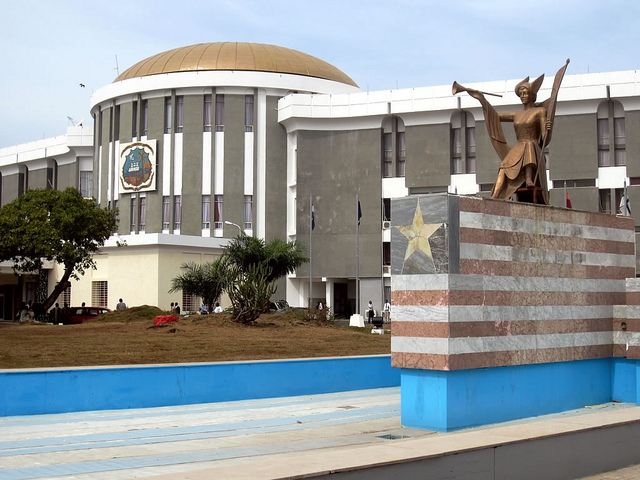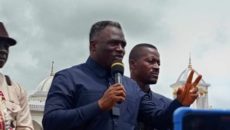MONROVIA, Montserrado – The Institute for Research and Democratic Development has released its 2016 report on the performance of lawmakers in the 53rd National Legislature.
The report, according to IREDD, is the final accumulated report card detailing the performance of members of the Liberian Legislature for the full 2016. It also provides some analysis on the overall governance of the legislature and the effectiveness of legislative committees.
“The monitoring report focuses on representation, lawmaking, and oversight responsibilities, in which lawmakers have traditional mandate to execute their formal responsibilities in the interest of their constituents and the country,†the report states.
Although much Legislative work is conducted in committee meetings, where bills are reviewed and amended, budgetary decisions are made, and important oversight duties are performed, the report says accessing committee meetings was difficult as access to committee meetings was problematic.
However, the report revealed that committees at both the Senate and the House of Representatives appeared to be very weak. They are not only found of withholding bills for more than two weeks, against their own rules, to the extent where in most cases bills are shelved for years without any action.
According to IREDD, a total of 187 committee reports with signatures were recorded during the year under review.
Of the number, the Liberian Senate accounted for 117, which constitutes 62.5 percent, while the House of Representatives accounted for 70, constituting 37.4 percent.
IREDD’s report also noted that there was immense political tension at the House of Representatives in 2016, triggered by the indictment of former House Speaker Alex Tyler. That contributed to delays in the passage of legislations.
Besides passing legislations, the legislature was also responsible for oversight of ministries and government agencies. IREDD tracked the number of oversight functions through communications by individual lawmakers.
A total of 111 communications were recorded at the House of Representatives while 84 were recorded at the Senate. At the same time, 18 public hearings were held with ministries and agencies of the executive branch.
During the period, IREDD observed that meetings were irregular and many of the members did not attend committee meetings. Legislators also appeared to be stretched thinly across several committees, making them “ineffective on committees that they have very little interest in.â€
The report says many committee members signed committee reports without necessarily participating in or working on that report.
“This is evidenced by the number of committee reports signed in open plenary session before they are submitted,†it says.
“Legislative committees’ attitude towards various instruments or tasks given them appears to be impugned with bias and partiality. In most cases, acts submitted to Plenary do not go through all the required reading procedures- the first reading constitutes the second as well and depending on the interest attached, some acts overstay in the committee room, while others are not forwarded to any committee but rather assigned to ad-hoc committees for speedy action.â€
The legislature, despite receiving US$47 million in the 2016/2017 national budget, lacked key resources. Often, there was no ink or stationaries in the offices of the secretary of the Senate and chief clerk of the House of Representatives, making work difficult.
Additionally, the report said the infrequency of electricity supply at the Legislature undermined its efficiency, often causing the body to abruptly adjourn session due to electricity outage.
Lawmakers were responsible for creating legislations and IREDD recorded that 166 legislations were passed by both houses – 86 came from the House of Representatives and 80 came from the Liberian Senate.
On attendance, the reported disclosed that the House of Representatives held 78 plenary sessions while the Liberian senate held 80 sessions. Only 14 lawmakers at the House of Representatives attended all plenary sittings.
Representatives with the lowest plenary attendance were Reps. Alex Grant, Roland Cooper and James Banney, who each accumulated the score of ‘F,’ meaning that they attended fewer than 60 percent of sessions.
For the Senate, George Weah, Prince Y. Johnson, Varney Sherman, and Matthew Jaye were given an ‘F,’ although the report sought to clarify that “Senators George Weah and Prince Johnson frequently attend ECOWAS parliament.â€
Featured photo courtesy of David Stanley



